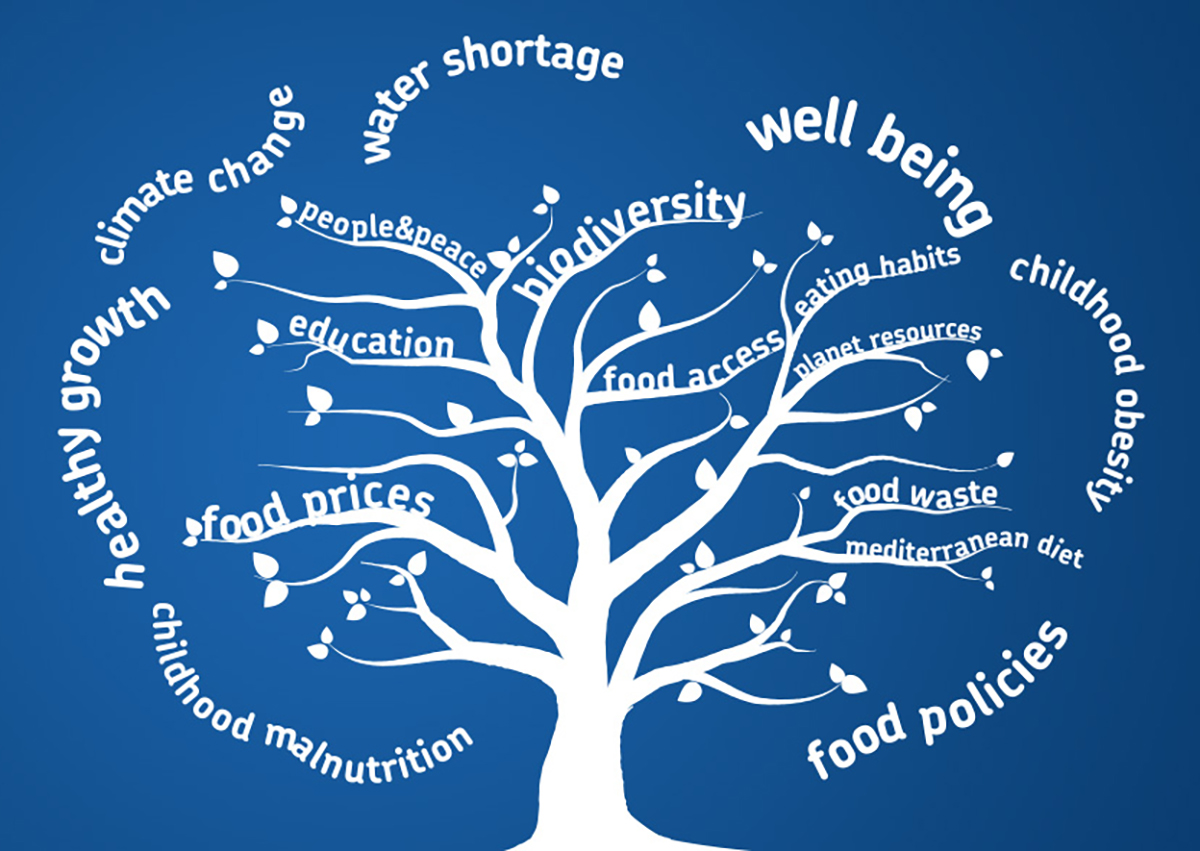
The eighth international food and nutrition forum organized on 4 and 5 December by Italian pasta giant Barilla at the Bicocca Hangar in Milan was – along with everything else – a different point of view from which to observe the phenomenon of migration. Representatives of the most important humanitarian organizations and institutions, opinion makers and university professors spoke about the crucial importance of food in the great changes that are affecting our planet globally. Starting with the “scourge” of great migrations: 5.4 million people in Central Europe and 4.5 million in Mediterranean Europe from 2010 to 2015. Every percentage point of increase in food insecurity forces 1.9% of the population to move, while a further 0.4% people flee for each year of war states the Macro Geo and BCFN (Barilla Center for Food and Nutrition) survey which was presented at the forum. Hence the recommendation to invest more on the economic and social development of the countries of origin of the migrations, but also not to see the migration phenomenon only as a threat or a problem of integration, but as an opportunity. Indeed, in the countries of destination the food market value is growing. In particular, the share of ethnic foods that in Germany, France, Italy, and Spain reaches a turnover of 3 billion euros.
Food Sustainability Index
The forum was also an opportunity to update the ranking of the Food Sustainability Index, the index created by BCFN with The Economist Intelligent Unit to analyze countries where food is not only better, but also more sustainable. The best countries this year are France, Japan, and Germany, while Italy gets the seventh position even if it ranks first for sustainable agriculture.
Italian consumers’ food habits
The Demos survey on the eating habits of Italian consumers was also presented. Among the most significant results, the fact that 3 out of 4 consumers do not feel ready to change their preferences at the table and prefer to eat Italian. One Italian out of two thinks however that our eating habits will in any case be destined to change in the coming years due to climate change (79.2%) of the fluctuation of raw material prices (78.2%), and the impact of social media (70.4%). For 68.8% of Italians polled this change will be triggered by the increased consumption of organic food, for 63.2% from the increase in functional foods, and for 59.7% from those at zero km. Only 47.4% of respondents think that the change will be determined by the fact that we will eat more ethnic foods, and 25% by the fact that we will eat insects.
The role of food industry
One of the highlights of the forum was the face to face meeting between Guido Barilla, president of Barilla Group and of BCFN Foundation, and the founder of Slow Food, Carlo Petrini. Food industry must make a leap in quality by proposing a better advertising capable of informing, educating, and making consumption more aware and critical. We must shift attention from price to quality, stated Mr. Petrini. Talking about quality, Guido Barilla has warned against the risk to confuse it with the origin of raw material: It is essential to repeat that the origin of the products is not synonymous with quality. The quality of a product lies in its raw material, in processing techniques, in safety, and healthiness. The geographical area of origin can be an ingredient of this mix, but it is not strictly related to the concept of quality. Barilla group has indeed invested 240 million euros to increase the production of durum wheat in Italy.

